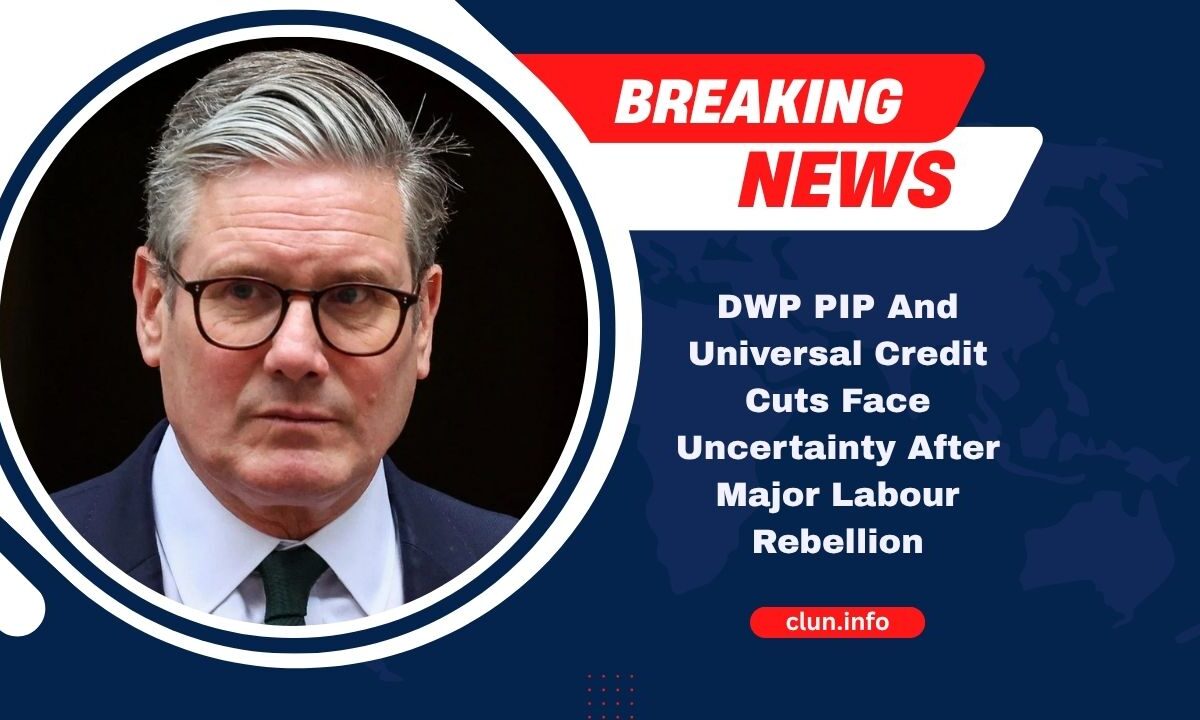June 26, 2025 – A significant political development has shaken the UK welfare reform landscape as over 100 Labour MPs have united in opposition to proposed DWP cuts to Personal Independence Payment (PIP) and Universal Credit.
The move, described as a “major Labour rebellion,” has placed pressure on the government to pause its welfare overhaul amid growing concerns about fairness and consultation with affected communities.
What Sparked the Rebellion?
The Department for Work and Pensions (DWP) recently unveiled plans to reform PIP and Universal Credit, aiming to streamline benefits and reduce long-term dependency. However, the proposals have drawn criticism from within the Labour Party itself.
The amendment, led by Treasury Select Committee Chair Meg Hillier and backed by 108 MPs, demands that the reforms be paused immediately.
MPs are insisting on further consultation with disabled people and comprehensive impact assessments before any changes are implemented.
“We all want the Labour government to succeed,” Hillier said, “but we want it to think again. These decisions affect some of the most vulnerable in society.”
Key Demands by Labour MPs
The amendment doesn’t call for scrapping welfare reform altogether but emphasizes the need for deliberate, inclusive decision-making. Below is a breakdown of the core demands made by the rebelling MPs:
| Demands by Labour MPs | Explanation |
|---|---|
| Pause on Reforms | Temporary halt to proposed cuts to PIP and Universal Credit |
| Wider Consultation | Inclusive engagement with disabled people and advocacy groups |
| Proper Impact Assessments | Evaluate how proposed reforms could affect vulnerable claimants |
| Time for Implementation | More realistic timelines for structural welfare changes |
| Safeguards for the Vulnerable | Guarantees that reforms will not harm those who genuinely need support |
Government’s Defense of Welfare Cuts
Despite the backlash, Liz Kendall, Minister for Work and Pensions, strongly defended the welfare reform plans. Speaking last week, Kendall emphasized that the changes aim to create a fairer society while preserving the welfare state.
She stated, “The path to a fairer society – where people who can work get the support they need, and those who cannot are protected – is what our reforms aim to deliver.”
According to Kendall, the proposed changes will:
- Encourage independence for those capable of working
- Maintain a safety net for those who cannot
- Introduce proper safeguards to prevent unfair assessments
However, critics argue that this vision overlooks the practical challenges faced by disabled individuals and low-income families.
Growing Tensions Within the Labour Party
The public nature of this rebellion highlights serious internal tensions within Labour ranks. One senior MP stated, “The government hasn’t listened to private concerns, so now will have to address these very public ones.”
This internal revolt could prove decisive, especially if the amendment leads to a parliamentary showdown over the welfare bill.
Labour MPs are not rejecting reforms outright. Instead, they want to ensure that the government:
- Listens to those most impacted
- Implements reforms gradually
- Protects the welfare system from further erosion
The pressure is now on Prime Minister Keir Starmer and Chancellor Rachel Reeves to respond swiftly and transparently.
What Happens Next?
If the amendment gains traction, it could derail or delay the current welfare reform proposals. A government defeat on this issue would be symbolic of broader resistance to austerity-style policies and could reshape the future of disability and welfare policy in the UK.
This development is especially crucial given the number of UK households dependent on Universal Credit and PIP as their primary sources of income.
Any significant change could impact millions of claimants, particularly amid ongoing cost-of-living challenges.
The Labour rebellion signals a growing divide on how welfare should be handled in the UK. While the government emphasizes fairness and sustainability, MPs are pushing for compassion, consultation, and safeguards.
The future of PIP and Universal Credit now hangs in the balance, and millions of claimants await clarity.
FAQs
Why are the DWP cuts facing opposition from Labour MPs?
Labour MPs argue that the reforms are being pushed without proper consultation or assessments, risking harm to disabled and low-income individuals.
What does the amendment led by Meg Hillier propose?
It calls for a pause in reforms, meaningful consultation with disabled people, and comprehensive impact reviews before proceeding.
Will this rebellion stop the welfare reform completely?
Not necessarily. The amendment seeks a pause and rethink, not a complete halt. However, it could delay or reshape the current proposals.
